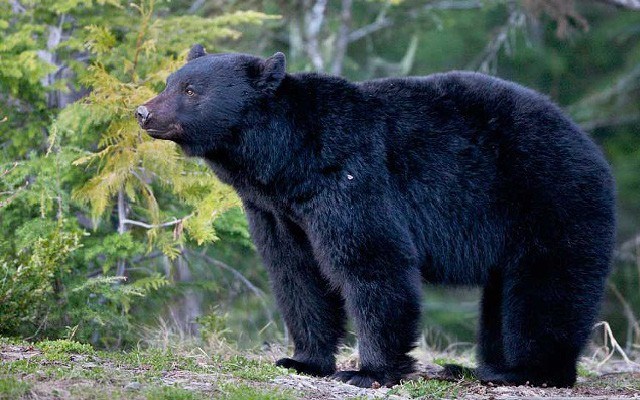What a difference a year makes.
By this point in the summer last year, a total of seven bears had been killed by conservation officers as a result of conflict with humans in Whistler.
So far this year? That number remains at zero. (There was, however, a bear killed on Highway 99 near Daisy Lake last week after it was struck by a vehicle.)
"It's been very good so far," said conservation officer Simon Gravel. "Not a lot of conflict, and when we did have some concerns we managed to respond pretty quickly and take proactive action."
Although Gravel chalked up the lack of conflict to a variety of factors, he believes residents are getting the message that they have to do their part in keeping bears safe.
"I'd like to say we're doing better as a community," he said. "We see less and less garbage left on the porch and people are monitoring the access to their windows and doors better, so there's an improvement there."
The Conservation Officer Service has also been "extremely proactive" in its bear management this year, Gravel said, and has been able to deal with problem bears — like one particular animal with a penchant for stealing food off of golf carts at a local course — before things got out of hand, thanks in part to additional overtime for officers.
Extended periods of hot weather may also have contributed in reducing conflict, explained Bear Smart executive director Sylvia Dolson, with black bears keeping cool by staying out of the sun.
"Because of their black fur coats they don't like to stand around in the sun when it's over 24 or 25 degrees C, so they'll be in the forest or become more active at night," she said.
This season also saw an early berry crop, offering ample natural food sources, although bears that have developed a taste for human food generally don't revert back to a natural diet.
Conservation officers will keep an eye on this year's berry crop with concerns that the natural food source may dry up if the hot and dry conditions continue through the summer.
"Of course, if there's no food source for them out there then they come down (to the valley) for any opportunity, so we'll just be a lot more vigilant and do our audits to make sure the bears are not accessing garbage or any non-natural food," said Gravel.
Meanwhile, Bear Smart has just released a video featuring members of the AWARE's Kids Nature Club explaining what they know about bears and what makes these wild animals so special.
"It's really interesting to get the info out of the mouths of babes," Dolson said. "They care about bears and that's really evident in the video."
The six-minute clip can be found at Bear Smart's Facebook and YouTube pages.
To report a wildlife conflict, call the Conservation Officer Service RAPP line at 1-877-952-7277.




